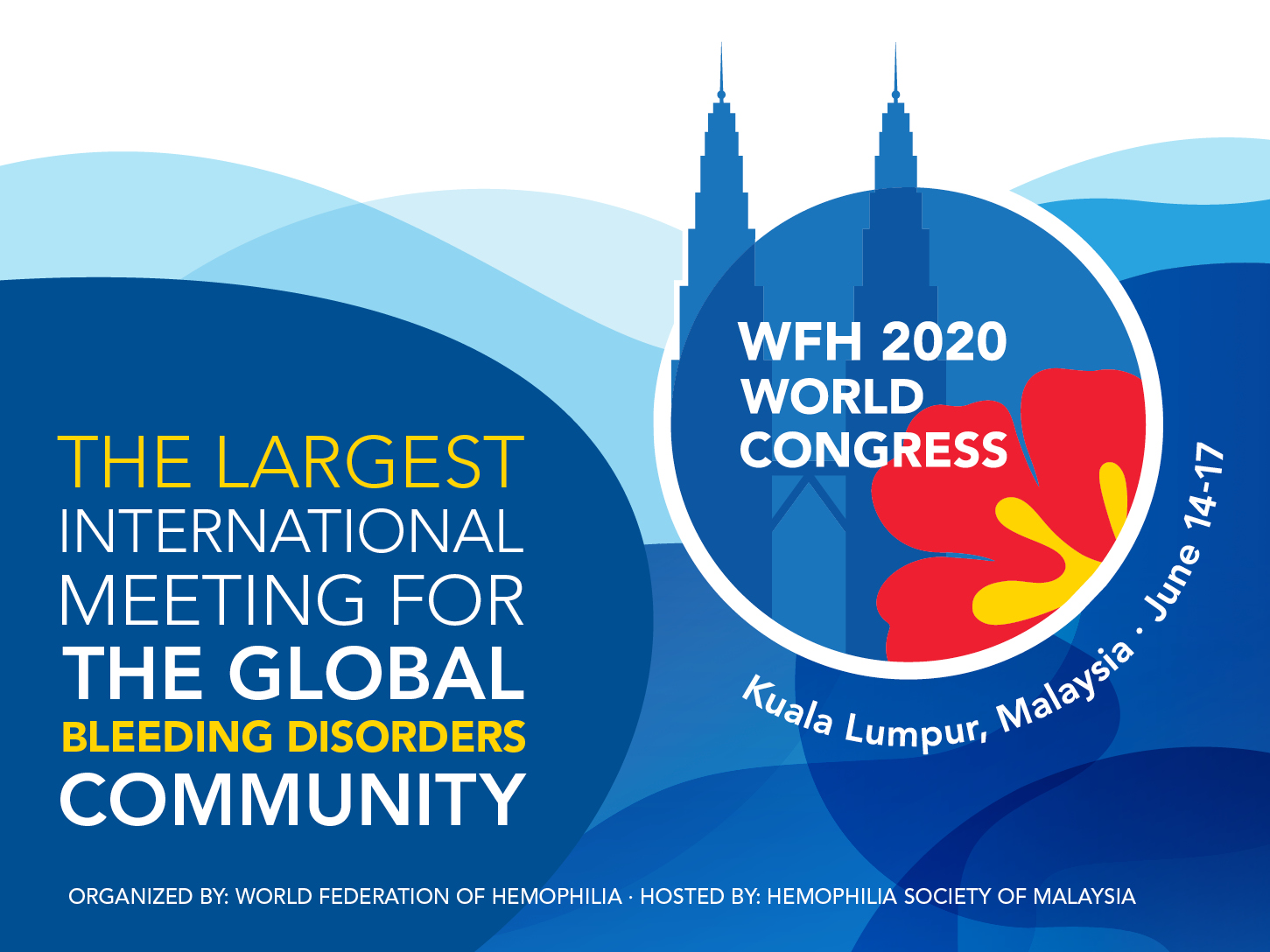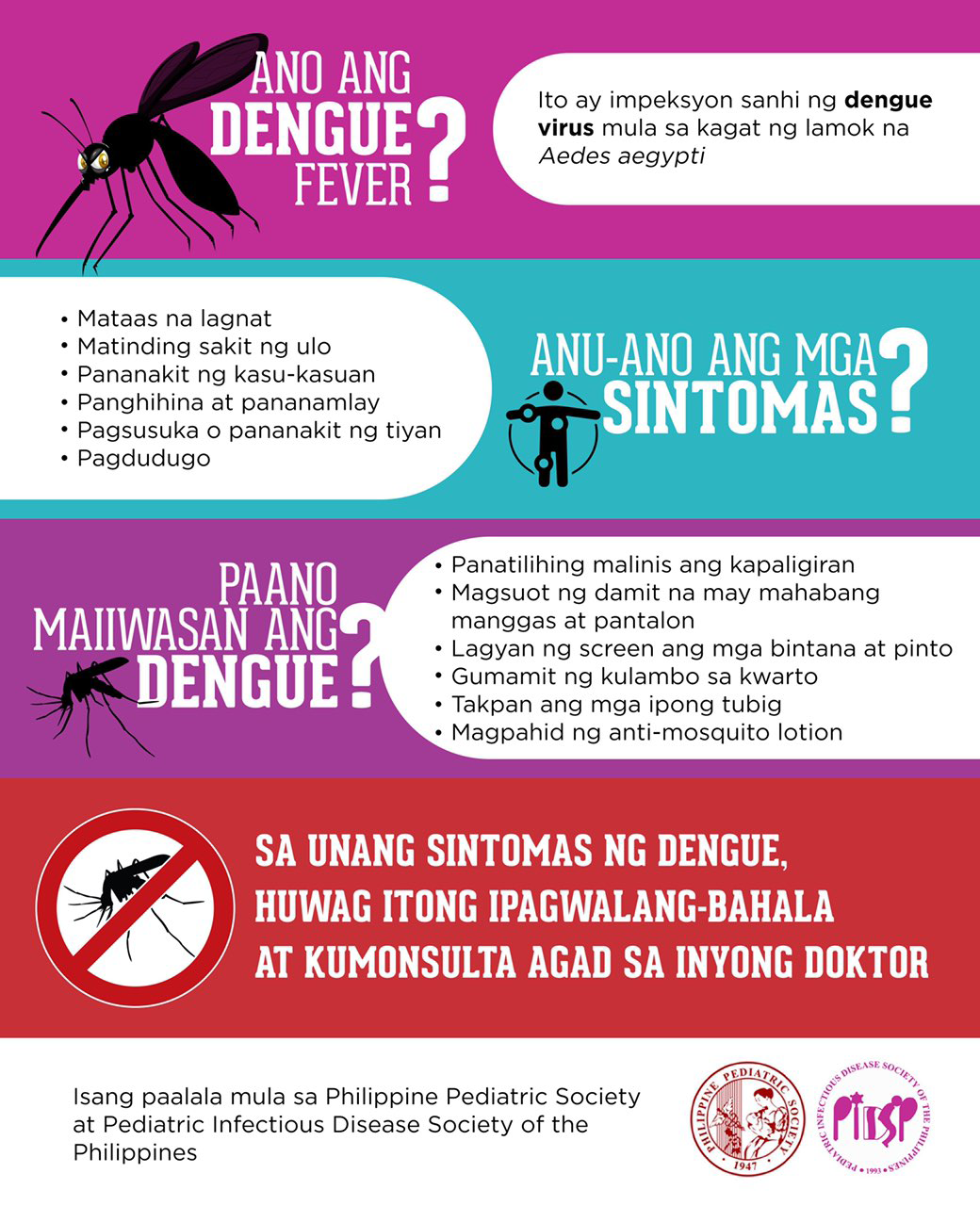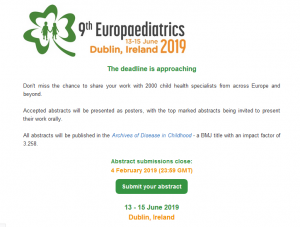An Urgent Plea from the
PHILIPPINE PEDIATRIC SOCIETY and the
PEDIATRIC INFECTIOUS DISEASE SOCIETY OF THE PHILIPPINES
Immunize Eligible Children Against
Vaccine-Preventable Diseases
06 February 2019
Dear Colleagues:
The ongoing increase in measles cases in the Philippines is alarming. A recent Department of Health Philippine Integrated Disease Surveillance and Response (PIDSR) report showed that out of almost 22,000 cases of clinical measles-rubella reported between Jan-Dec 2018, there were 5,120 confirmed measles cases. Among these cases, about 200 deaths were reported, among which 59 were confirmed measles deaths. This reflects a staggering 547% increase in cases compared to the previous year (791 cases and 17 deaths in 2017). Of note, 70% of cases and 88% of deaths due to measles had not been vaccinated. All regions in the country have been affected by this crisis.1
Measles is a highly communicable disease, having an attack rate of 90% among susceptible exposed individuals. More than 95% of a given population needs to be protected to interrupt ongoing transmission.2 The World Health Organization aims to achieve at least 95% coverage with both the first and second routine doses of measles vaccine (or measles-rubella-containing vaccine as appropriate) in each district and nationally as part of the Global Measles and Rubella Strategic Plan 2012-2020.3 Unfortunately, the National Demographic and Health Survey revealed a decreasing trend in the number of vaccinated children, from 80% in 2008 to 70% in 2017.4 Recent news articles have quoted DOH officials confirming a further decline in vaccination coverage to about 60% last year.5
We, as healthcare providers, have the responsibility of educating our patients about the importance of disease prevention through immunization. We should take every opportunity to convince and reinforce the message that the vaccines available to prevent diseases are safe and highly effective, and that vaccination remains the main intervention in reducing morbidity and mortality against infectious diseases.
In addition to the above, some activities that we can embark on include:
1. As individual clinicians:
a. Ensure up-to-date immunization of all our patients.
b. Provide the first dose of measles-containing vaccine (monovalent measles, MR, MMR) to infants starting at age 6 months instead of the usual 9 months of age, as recommended in the Childhood Immunization Schedule.
c. For children who received their first dose of measles-containing vaccine at age younger than 12 months: provide two additional doses of MR or MMR, minimum of 4 weeks apart, beginning at 1 year of age.
d. For any individual older than 12 months of age without a history of measles disease, not pregnant or not planning to become pregnant in 4 weeks, with no immunocompromising conditions or allergic reaction to a previous dose of measles-containing vaccine: a dose of monovalent measles, MR or MMR may be given. A second dose of measles-containing vaccine may be given to complete the 2-dose schedule.
e. Support public programs conducted by your local government health unit, by encouraging your patients to be vaccinated through these programs when appropriate.
2. As officers / members of local medical societies:
a. Collaborate with the City, Municipal or Provincial Health Office, in organizing community-based regular Vaccine Mission activities. b. Spread the word in your community, and increase awareness about measles and other vaccine-preventable diseases.
3. As a hospital-based clinician or hospital administrator:
a. Collaborate with the City, Municipal or Provincial Health Office in organizing a hospital-based Vaccination Desk, and offer free measles and other available vaccines to qualified children, adolescents and even adults
b. Provide measles-containing vaccine to your in-patients once they are ready for discharge.
Although this unprecedented crisis has challenged our national health system, we believe there is hope as long as we all work together. Lets each do our part and make a difference!
1 Department of Health. Philippine Integrated Disease Surveillance and Response. Morbidity week No. 52. Epidemiology Bureaus Public Health Surveillance Division. January 1-December 31, 2018
2 American Academy of Pediatrics. Measles. In: Kimberlin DW, Brady MT, Jackson MA, Long SS, eds. Red Book Report of the Committee on Infectious Diseases. 31st ed. Itasca IL.: AAP; 2018: 537-550
3 World Health Organization. Global Measles and Rubella Strategic Plan 2012-2020. Available at https://www.who.int/immunization/diseases/measles/en/. Accessed 31 Jan 2019.
4 Philippine Statistics Authority (PSA) and ICF. 2018. Key Findings from the Philippines National Demographic and Health Survey 2017. Quezon City, Philippines, and Rockville, Maryland, USA: PSA and ICF.
5 S. Tomacruz. A year after Dengvaxia: Immunization drops, measles outbreak soar. Published Dec 1, 2018. Available at https://www.rappler.com/newsbreak/in-depth/217912-dengvaxia-one-year-after-outbreaks-series-part-1





